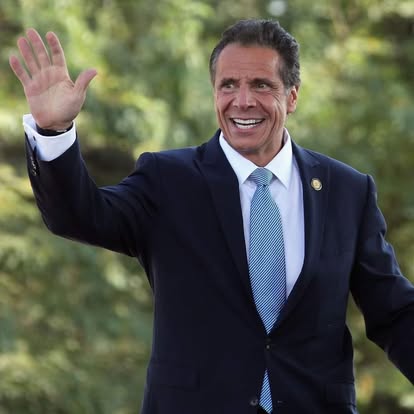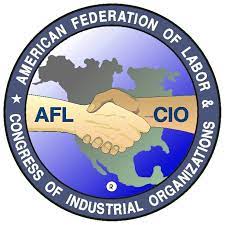Progressive wing stressed by gas debate
New York, NY – Hundreds of rank & file members of Transport Workers Union Local 101, employed by the National Grid utility, rallied outside the site of the May 3 New York State Climate Action Council public hearing in Brooklyn to protest its draft plan as a “job killing disaster.”
The packed public hearing at the Brooklyn campus of the New York City College of Technology was the seventh in series of hearings that have been scheduled to get comment on the CAC’s proposals.
The Climate Action Council was established back in 2019 with Albany’s passage of the Climate Leadership and Community Protection Act which committed the state to reduce greenhouse gas emissions by 40 percent across the economy by 2030 and “no less than 85 percent by 2050 from 1990 levels.” The draft plan calls for a dramatic shift away from the burning of fossil fuels which have been linked to the warming of the earth’s atmosphere and catastrophic climate change.
Before the hearing, the TWU contingent was joined by other unions that oppose a draft action plan generated by the Climate Action Council they say would compel New Yorkers to switch from natural gas stoves to electric as well as ban new residential gas line hookups by 2027. The CAC proposal would also ban fossil fuel vehicles by 2035.
WHICH SIDE ARE YOU ON?
The controversial draft plan is a divisive issue within the Democratic Party’s progressive wing which includes both committed labor activists and environmentalists that now find themselves on opposite sides of the debate over how New York State can best to get to a zero emission economy without displacing workers.
Transport Workers Union Local 101 President Constance Bradley told the large crowd outside the hearing that climate change was one of “the biggest threats we face today” but that a commitment to lower emissions needed to be support by labor unions that “want to be part of the solution.” Thousands of additional National Grid workers are also based in Staten Island as well as Long Island and are represented by IBEW Local 3 and IBEW Local 1049.
“This draft plan would be a job killing disaster and also will zap residents and homeowners with sky-high energy costs,” Bradley, told her members who all work for the utility in Brooklyn and Queens. “It would wipe out thousands of good union jobs that enable blue-collar families to put food on the table, pay the rent, and send their kids to college. There is a better way.”
According to an information sheet put out by the union the draft CAC plan calls for no new natural gas service to existing buildings, starting in 2024 as well as no new gas appliances permitted, starting in 2030. “That means if you need to replace your natural gas furnace, stove, water heater, and washer-dryer, you will have to buy electric appliances and upgrade your electrical system to handle the greater load,” according to the union’s analysis.
The TWU contends that National Grid has a plan to rely on what they call a “common-sense” plan that relies on “renewable natural gas, which is captured from landfills, farms, and waste-water facilities, and green hydrogen, produced by solar and wind farms.”
“It’s now or never time for New York Democrats,” said Transport Workers Union International President John Samuelsen. “Are you going to be the party protecting the economic security of workers as we transition to a greener world, or are you the party of environmental elites?”
Pete Sikora was CWA District 1’s director of legislative and political mobilization efforts. He is a critic of National Grid’s plan. He is now with the New York Communtiies for Change as its director of the non-profit’s Climate and Inequality Campaign.
PROFITS OVER PEOPLE?
“This idea that National Grid is pushing is garbage,” said Sikora during a phone interview. “National Grid is a gas only utility that is attempting to strangle our future for its own profit. It uses a variety of misleading propaganda talking points that sound technical but are nonsensical. But the idea of renewable natural gas is a like a doubling down of propaganda. Natural gas itself is not natural. It’s not a thing.”
He continued, “There should be zero new gas infrastructure — zero. That includes to hook up buildings to get them addicted to fossil gas —fracked gas as we call it. None of that makes sense, either from a social perspective because we are torching our future, polluting our air and killing people, or form a strict cost perspective. Building a building gas free is the same cost.”
As for the existing legacy gas infrastructure that employs union workers, “it has to be retired in a manner that is rapid and protects worker people’s pocketbooks and helps create massive amounts of good new union jobs hiring in communities of color, so there is an enormous opportunity in that process and that’s a complicated thing with all of nuance in it.”
Haley Viccaro, a spokesperson for the New York State Department of Environmental Conservation, told the Daily News that a recent report found that New York State would actually gain 10 new jobs in the shift to zero emissions for every one it lost as a consequence of the transition away from fossil fuel.
Joshua Freeman is a professor emeritus of history at the Queens College School of Labor and Urban Studies the “whole framework of the debate is problematic.”
“I think the underlying problem is there are so few of what we call ‘good jobs’ available for working class people so the transition to a more sustainable—green kind of energy production system way of life will have a tremendous disruption involved,” Freeman said during a phone interview. “If there aren’t other good paying union jobs this kind of fratricide battle is inevitable. These jobs like with National Grid are still a rarity and that’s a real problem. Especially of all you have is a high school education.”
Freeman said that climate change activists that want to shutdown the existing fossil fuel infrastructure on an expedited basis who say they are committed to worker retraining have to overcome worker doubts about how similarly well intentioned programs have actually panned out in the past.
“There’s lot of skepticism for good reason,” Freeman said. “If you get laid off from your good paying job, like we saw with the steel workers in the Midwest you got retraining but what was out there for the next job was nowhere as good as the job the steel workers had lost.”
Boosters of the state’s Climate Action Council say it is the most ambitious state-based effort undertaken to date. The panel includes the top leadership of agencies like the New York State Department of Environmental Conservation, the Public Service Commission and the New York State Department of Health. Other stakeholders on the body include energy supplier trade groups, the Regional Plan Association, academic experts as well as community based non-profits and environmental groups.
LABOR AT THE TABLE
On May 3, Governor Kathy Hochul announced the appointment of Mario Cilento, president of the NYS AFL-CIO, as the newest member of the state’s Climate Action Council, making good on her previous commitment to appoint a representative of organized labor to the panel.
“Confronting the existential threat of climate change will require the contribution of New Yorkers from all walks of life,” Hochul said in a statement. “Organized labor has been a steadfast partner for the State in this fight and Mario will be an exemplary representative for the community.”
“I look forward to being part of a team committed to addressing climate change in a way that will result in the creation of good, family-sustaining jobs utilizing a highly skilled workforce,” Cilento said. “We have already set a high bar by securing historic labor standards that include prevailing rate, labor peace, Buy American, and Buy New York when renewable energy credits are awarded on large scale projects. As a member of the council, I will ensure that the voices of all working people are fairly represented.”
Back in February, the climate change debate took on a new sense of urgency with a report from the United Nation’s Intergovernmental Panel on Climate Change that found the planet’s response was inadequate to insulate vulnerable cities, farms and coastlines from the ravages of climate change including droughts, rising seas, and extreme weather events like wildfires.
Specifically, the researchers determined that in 2019 extreme weather events had forced 13 million people from their homes in Africa and Asia with close to half the world experiencing water supply insecurity at some point in a year.
The remaining public hearings of the Climate Action Council are scheduled for Tuesday May 10 at Tupper Lake, Wednesday May 11 (virtual) and May 12 in Peekskill.





